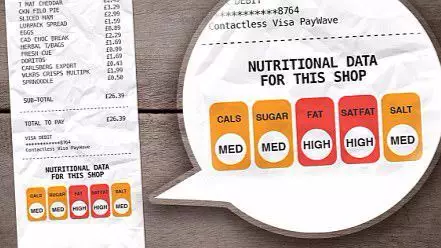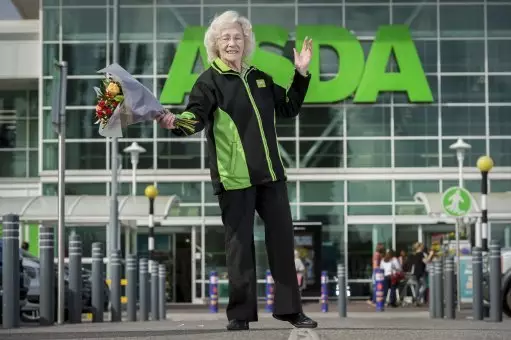
Supermarkets could begin rating customers' shopping using a traffic light warning on receipts.
The receipts would show the total calories, sugar, fat and salt in your basket. The ratings would use the red, amber and green system 'traffic light' system currently used on food packaging.
Researchers from Birmingham City University hope this will help shoppers make healthier choices about their food.
Advert
Lead researcher Matthew Cole said: "Current evidence suggests that whilst consumers generally find the traffic light nutrition labelling useful, there are limitations, particularly when considering a person's overall nutritional intake.
"A new receipt-based system could bridge this gap, and provide an additional tool to help aid consumers in their food purchases, providing an overall summary of their entire food purchases."

Credit: PA Images
Research into the project shows that more than 83 percent of people currently use traffic light information to assist them in making their food purchases and more than half said they would like to see the total data displayed on their shopping receipts.
In the UK almost two thirds of adults and a third of children are either obese or overweight, and it is estimated that these figures will rise to almost 90 percent of adults and two-thirds of children by 2050.
Dr Cole said the receipt summary would give people a better idea of what they eat over a period of time - and whether any changes need to be made.
"A till receipt summary gives a much better representation of what a person eats over a period of time," he said.
"This isn't really about one shop - it's about looking at your dietary trends over time."
But some campaigners have attacked the proposal describing it as 'nannying'.

Credit: PA Images
Brook Whelan, chief executive of the People Against Sugar Tax campaign group, told The Sun: "There is a small percentage of the population who do need to make healthier choices, but all this proposal would do is create unnecessary panic for most other shoppers.
"Most people are sensible enough, and it is time for the big nanny state to leave our food and soft drink choices alone."
Advert
Research also revealed that the majority of respondents considered health to be the most important factor when making food choices.
Over 42 percent of people said health was their key consideration while only 23 percent cited cost, despite most previous research highlighting this as the main influencer.
Featured Image Credit: Birmingham City UniversityTopics: supermarket